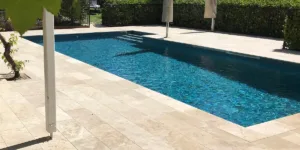8 Expert Tips and Tricks to Keep Your Home’s Plumbing Healthy
Cleaning and monitoring what goes down the drain at least once a year can save one a lot of time and money in the long run? We rely on drains, from kitchen sinks and showers to bathroom vanities and laundry tubs everyday. You probably don’t think much about the water network and sewer pipes that run through your walls and provide hot and cold water as well as waste removal on demand. Toilets,showers, sinks, hot and cold water lines, and drainpipes in any home bathroom handle a tremendous amount of work.
They can wear out, leak, and even break over time, but you can’t completely prevent them from completely wearing out. One thing you can do is significantly slow down its process. Plumber With a little effort and time, you can significantly increase the longevity of your pipes and reduce the need for costly repairs. Here are some plumbing maintenance tips and tricks to keep your home’s plumbing in good working order:
1. No to Chemical Drain Cleaners
The most common home plumbing problem is clogged drains, which can be cleared with chemicals. However, these products can sometimes cause more harm than good. They are capable of eroding cast-iron drain pipes. Please avoid pouring chemical drain cleaner down the drain if you have a slow or clogged toilet drain, as it is impossible to prevent all causes of obstacles.
These pre-made portions of acidic chemicals from the shop are only temporarily useful, and they can seriously damage and corrode the drainpipe. As an alternative, use hot water, vinegar, and baking soda. The contents will clean out your drains as they bubble up, trying to restore normal water flow.
2. What you Should and Should Not Put Down Your Drains
Do not flush any waste down the toilet. Never flush trash or litter down the toilet. The only type of paper that should flush down the toilet is toilet paper. Because facial tissues are very absorbent, they can quickly expand and clog the pipes if flushed down the toilet.
Any type of wet wipe is a serious problem because it can clump together and form a massive clog in the sewer line and the public sewer system, as well as clogging the bathroom plumbing. Stopping any larger or easily caught items before they reach the drain is a good method for all household drains. Decision to invest in drain covers throughout one’s home can also assist in catching any items and particles one may have missed.
One can install mesh drain covers so that hair, soap flakes, and other components that get into your drains clog them. Installing mesh drain covers in your sinks, shower, and tub can help one to avoid the inconvenience of having to block one’s drains on a regular basis.
3. Small Habits, Big Impact
Make general drain maintenance one of your semi-regular chores. Rinsing a couple tablespoons of dish soap or a small amount of bleach down the drain biweekly (or even once a month) can help maintain the health of your pipes and drains. Place a few ice cubes in your garbage disposal, run cold water through it, and turn it on to extend its life. These minor tasks can have a significant impact on the future of your plumbing.
4. Do Not Dismiss Leaks
Small leaks may appear insignificant, but they are not. The constant drip-drip-drip of even the smallest leak corrodes the connections over time. Finding the source of the pipeline leak is important because it could indicate a decaying piping system. Leaks spread as your pipe deteriorates. Leaks erode your pipe more as they grow in size. It’s the worst kind of costly vicious cycle.
5. Pipe Repair Spray
Pipe repair spray is appropriate for short-term leak repairs in pipes, guttering, drains, windows, and roofs. It seals by leaking into the holes and cracks left by the burst. A good pipe repair spray protects the surface from corrosion while remaining flexible and malleable for many years.
6. Shower Heads Can be Cleaned With Vinegar
Mineral buildup on shower heads accumulates over time. As a result, they may become completely blocked or lose some of their effectiveness. Shower heads should be disassembled and soaked in vinegar for 24 hours to remove mineral deposits.
7. Rubber Sellotape for Pipe Repair
Rubber tape for pipe repair is a good short-term fix for leaking pipes. Turn off the water supply and wrap the tape around the leaky pipe several times to help create a watertight barrier. Plastic and metal tubes can both be repaired with this tool. This is also one of the cheapest methods for temporarily stopping pipe leaks.
8. Check the Water Pressure
Have you ever started washing dishes but the water pressure was slowly dripping out? It’s not just you, after all. Although we may not think about it much, maintaining a healthy water pressure is beneficial to our homes. Because they are not accustomed to high water pressure, it may cause leaks or even cause your pipes to burst. Because of this, balance is essential. You can check your water pressure levels with a pressure gauge. It will notify you if the pressure is too high or too low. This is another precaution you can take is to install a pressure regulator.
Conclusion
So, these are some of the essential tips and tricks for keeping your home’s plumbing neat and healthy. Maintaining your plumbing system is not as difficult as one might think. Leaks, water damage, and obstructions in your plumbing can all be avoided with simple maintenance and following some tips as mentioned.
Check your exposed pipes for signs of damage or deterioration on a regular basis. Rust, warping, and water stains on the exteriors of the pipes are all indications of a problem that should be addressed by a licensed plumber. Take the time to maintain your home’s plumbing because you rely on it every day. Looking for a plumber. Contact now.







